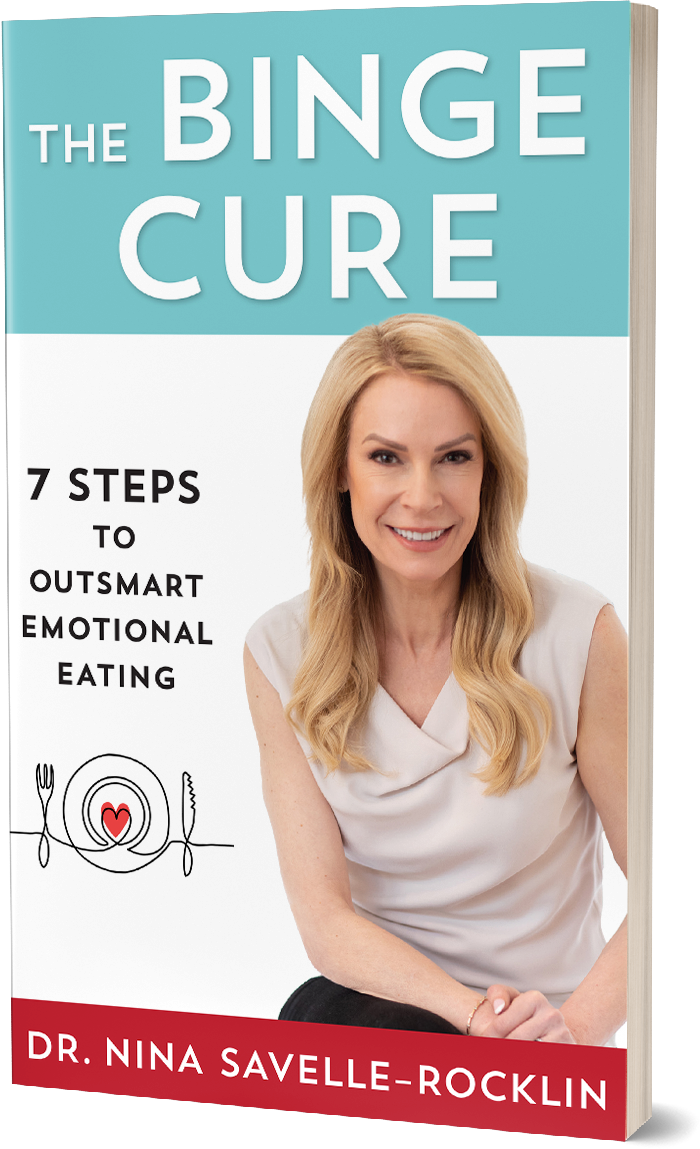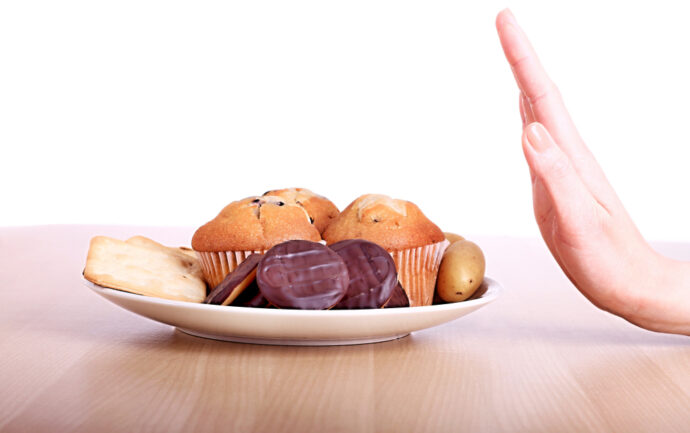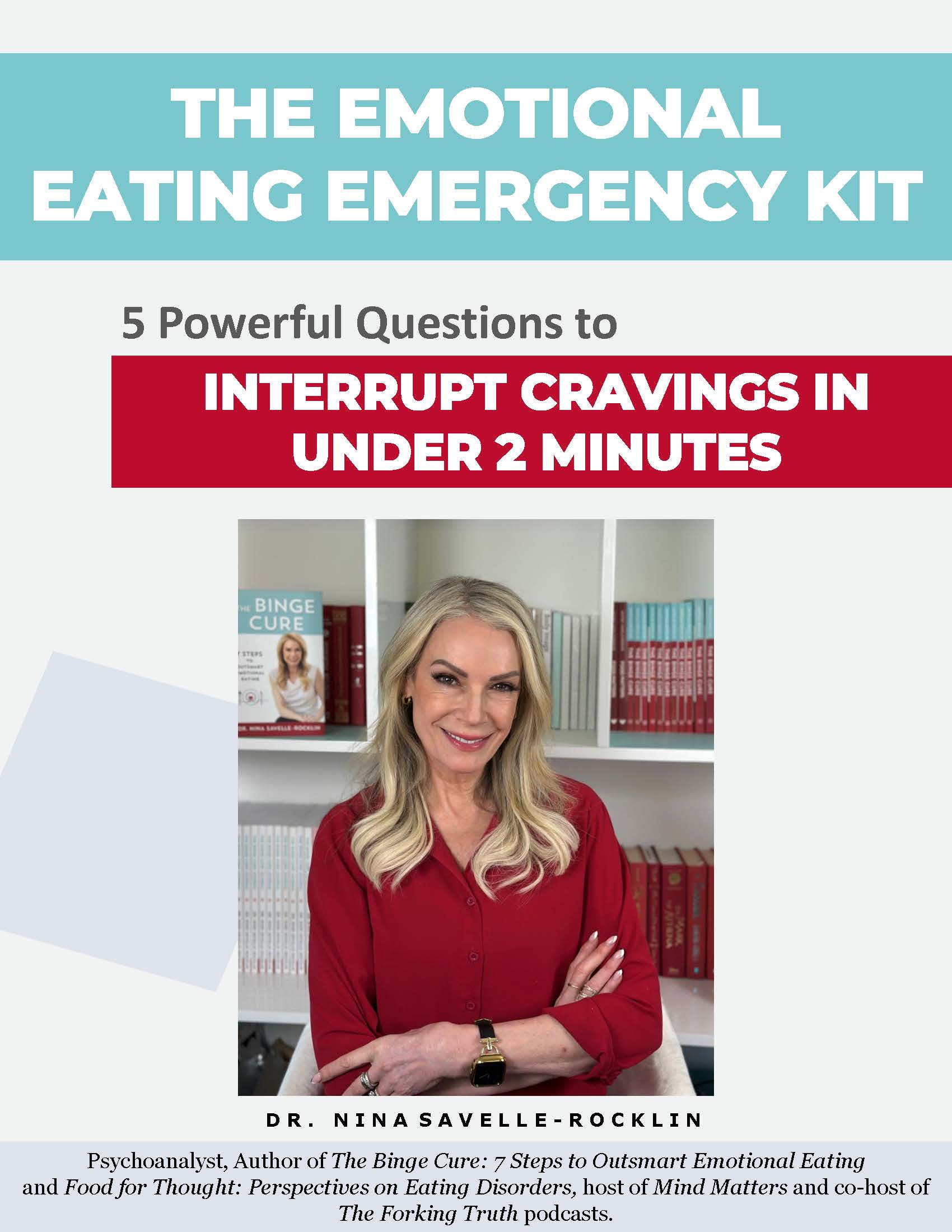Dr. Nina Savelle-Rocklin
The Power of Words: How to Protect Yourself From Negative Self-Talk
Table of Contents
- Awareness of Your Inner Dialogue
- Reframing Negative Thoughts
- Five Words that Undermine your Self-Esteem
Most of us are familiar with the old adage, “Sticks and stones may break my bones, but words will never hurt me.” This suggests that verbal insults or criticism are not as damaging as physical blows. This statement is entirely wrong. While physical pain can be short-lived, the emotional damage caused by words can have a lasting impact on an individual's self-image, sense of security, and mental well-being. Words have the power to cause significant harm and long-term emotional trauma.

How other people speak to us can harm our self-esteem and self-worth. Our words to ourselves also hold the power to either pull us down or lift us up. Our inner dialogue can have a powerful effect on how we think and feel about ourselves, which is why negative self-talk can be damaging if it is not addressed. When we are self-critical, we feel terrible. Many of us turn to food to get away from our inner critic, since eating or bingeing provides temporary comfort, momentarily silencing that harsh internal dialogue. Let’s discuss some strategies that can help you turn that inner critic into a friend, so food stops being your best friend and worst enemy.
Awareness of Your Inner Dialogue
The first step in protecting yourself against negative self-talk is developing awareness of what you are actually saying to yourself throughout the day. Becoming aware of our inner dialogue often requires stopping for a few moments and really listening to what we tell ourselves when faced with challenges or disappointments. For example, if you find yourself struggling, do you tell yourself “I am so stupid” or “I should be able to deal with this”? Or if someone compliments you, do you respond with “It was nothing special” or “Thank you, I appreciate it”? Once you become aware of your inner dialogue, it is time to start replacing those negative thoughts with positive, constructive ones.
Also, if you find yourself using the pronoun “you” when talking to yourself, that is often an indication that your inner critic is in charge of your thoughts. For example, consider if you say things like this to yourself:
You’re such an idiot
You’re never going to succeed
They don’t like you
If so, consider whose voice that sounds like. Is it familiar? Perhaps someone in your life spoke to you that way and you internalized their voice. Another reason we learn to speak in this way to ourselves is the lack of a safe holding environment, so life feels too unstructured. In these instances, children create their own internal rules, which are often harsh and overly rigid.
If you speak to yourself in the second person, using “you” try saying the same words with the “I” pronoun. The chances are good that it will be more difficult for you to say these things to yourself.
I’m such an idiot
I’m never going to succeed
They don’t like me
Changing the way we speak to ourselves can be incredibly powerful. A general rule is, if you wouldn’t say something to a friend, a child, or a loved one, don’t say it to yourself.
Reframing Negative Thoughts
Once we become aware of our inner dialogue and recognize that it needs to change, reframing our thoughts can effectively replace negativity with positivity. Reframing involves changing our language when talking to ourselves and recognizing distorted or exaggerated thoughts. Instead of telling yourself “I’m a complete failure,” after making mistakes or experiencing setbacks, try telling yourself something like “This isn't ideal, but I can learn from this experience and try again tomorrow.” Recognizing your strengths and your ability to learn, grow, and bounce back from challenges is one way to build confidence and resilience in difficult times.
Five Words that Undermine your Self-Esteem
Again, consider how you talk to yourself. Do you say mean things you’d never say to a friend, partner, spouse, or child? If so, those words are likely affecting how you feel – and how you eat. Recently, Tabatha attended a New Year’s Eve party, and when it was time for cake, she told her friend, “Oooh, that looks really good, but I shouldn’t eat it. I really shouldn’t go anywhere near that cake.”
She was going to Hawaii a few days later, and said there was no way she was getting into a bikini if she still had this “disgusting muffin top.” She poked her stomach and made a face as she prodded her midsection. She went on to say that she needed to get fit; otherwise, she worried her husband would leave her for some thinner, younger woman.
Tabatha sighed. She said, “I lose weight, and then I gain it back. What if nothing ever changes? What if I’m stuck like this for the rest of my life?”
She looked very discouraged. Then she said, “Now I’m depressed. I might as well have that cake.”
And she did. Two pieces. Afterward, she was disgusted with herself. She said, “I had two pieces of that cake, and it wasn’t even that good. What is my problem? What is wrong with me? Why can’t I be normal?”
Does any of this sound familiar? Tabitha used sabotaged herself five different ways. Here’s the breakdown:
#1 – The word “should”
How many times have you told yourself, “I shouldn’t have eaten that,” or, “I should be better at that,” or, “I should have more friends,” or something along those lines.
The phrase “don’t should on yourself” is often used to remind us that harsh criticisms, judgments, and expectations from others can be damaging mentally and emotionally. It suggests that we should focus on our dreams, desires, and goals without comparing themselves to the standards of others. It encourages self-compassion, self-love, and acceptance for the person you are. By rejecting the negative judgments of others, we can learn to accept ourselves and be kinder to ourselves.
The word “should” causes you to direct anxiety, sadness, anger, and distress toward yourself. Those feelings can get so powerful that you’re likely to cope by eating. Instead of “I/you should not do that” ask yourself: What do I want? What am I feeling? What’s going on with me right now? Be interested in your thoughts/emotions rather than judgmental.
#2 – Being a mean girl (or guy)
We often hurt ourselves by calling ourselves names and being mean. When Tabitha referred to herself as “disgusting” that was mean. Imagine saying to one of your friends, “You shouldn’t eat that cake, because you are disgusting. And if you do eat that cake, I’ll be even more disgusted with you.”
It’s highly likely that you would never say such a thing to anyone else. But you may find it easy to say mean things like that to yourself.
Words are powerful. When we say, as Tabitha did, “What’s wrong with me? What’s my problem?” it makes us feel terrible. When we feel bad, food reliably provides distraction or comfort, so we can get stuck in a pattern of being mean, feeling bad, eating, or bingeing, which then leads to being mean again (as in, “I can’t believe I ate that. I’m so disgusted with myself!”) and the cycle continues.
We stop the cycle by learning to soothe ourselves with words, speaking kindly to ourselves, and treating ourselves with dignity and respect.
#3 – Tone of voice
It’s not just the words that are important. Tone also has a lot to do with it. I once asked the members of my support group to say something supportive about themselves. They each did it, grudgingly, and said things like:
(in a flat tone) You’re going to be okay.
(in a questioning tone) I’m fine the way I am?
(forced) It’s okay to feel upset.
There was nothing wrong with what they were saying, but there was a lot to be desired in terms of how they were saying it. Not comforting, not soothing, not helpful. This is what soothing sounds like:
(warm) I’m going to be okay.
(soothing) I’m fine the way I am!
(comforting) It’s okay to feel upset.
A soothing tone is like a verbal hug. When we talk to yourself the way we talk to others, we feel a lot better. And when you feel better, you don’t need food as a distraction.
#4 – What IF vs. What IS
Remember how Tabitha said, “What if nothing ever changes? What if I’m stuck like this the rest of my life?” And that’s when she went for the cake.
“What if” is about fear, it’s about the future, worrying that some kind of punishment, rejection or deprivation lies ahead:
What if I go out with that guy and he turns out to be a jerk?
What if I ask someone out on a date and she rejects me?
What if I ask for a raise my boss gets mad or says no?
What if I make a mistake and get fired?
What if I'm making the wrong choice?
What if I say the wrong thing?
“What if” thinking makes us upset in the present about something that may never even take place. When you have here-and-now emotions about future events, you’re more likely to eat.
In contrast, “what is” is about reality. When you are grounded in what is actually happening, what you know to be true, you are less likely to feel anxious, worried or upset.
What if = fear. What are you worried about that has to do with an imagined future?
What is = reality. What do you know right here, right now? Who are you, right here, right now?
What do you know to be true about yourself? How have you handled difficult situations in the past?
Remembering who you are and recognizing your capabilities can lessen your anxiety, because when you know you can get past difficult situations, you’re less afraid of them.
#5 – Normal
The definition of “normal” means conforming to a standard of what’s usual, typical, or expected. To be honest, I have yet to meet a so-called normal person because there’s such a wide range of what’s typical, and it’s also based on where you live and the culture of your family, neighborhood and environment.
If you’ve got full-sleeve tattoos, for example, you’re not going to be normal in certain suburban neighborhoods. But you might live in a downtown loft where everyone has tattoos and it’s weird not to have any ink. So, what’s normal?
When you say, “I’m not normal” or “That’s not normal” you’re putting yourself down, you’re saying there’s something wrong with you. When Tabitha said, “Why can’t I be normal?” what was she really communicating?
On the surface, she was wondering why she couldn’t be like people who don’t worry about cake, but I think on another level what she really wanted to know was, “Why does cake have such a hold over me? Why am I so focused on cake?”
There are a lot of possible answers to those questions. Maybe Tabitha felt deprived. Maybe she needed more sweetness in her life. Maybe it was easier to focus on problems with cake than on problems in her marriage. The point is, there’s an underlying reason she focused on that cake, and she needs to have a better understanding of that reason, instead of berating herself for eating cake.
When you ask yourself questions, you’re more likely to come up with answers. Our minds want to fill in the blanks. That’s why it’s important to stay curious, not critical. Be compassionate to yourself, not cruel. You’ll understand yourself better and feel good. When you nourish and nurture yourself with words, you’ll stop using food as a substitute.
It is easy to get caught up in the power of words—both those spoken by others and to ourselves—but there are ways we can protect ourselves against them. By noticing our inner dialogue and reframing our thoughts into something more positive where possible, as well as practicing self-care such as regular exercise and healthy eating habits etc., we can guard ourselves against any harm caused by our words.
Speaking mindfully to ourselves helps us stay grounded in reality while allowing us to focus on what matters most—our values and goals, and what makes us happy. This is why turning our inner critic into a friend, by changing the way we talk to ourselves, is a primary key to creating a binge-free, happy life.

Sick of obsessing about every bite?
GET THE CURE
The Binge Cure Book!
Enter “CURE” to receive a 20% discount.
I’d love to conquer binge eating by ordering Dr. Nina’s book, The Binge Cure!
No, I don’t want access to this terrific resource to help me overcome binge eating.
The Author

Dr. Nina Savelle-Rocklin is a renowned author and podcast host and one of the nation’s leading psychoanalysts known for the psychology of eating. Her signature message of, “It’s not what you’re eating, it’s what’s eating ‘at’ you” has resonated with hundreds of thousands of listeners from around the globe in 40 countries. As founder of The Binge Cure Method, she guides emotional eaters to create lasting food freedom so they can take back control of their lives and feel good in their bodies.
Related Blogs




















